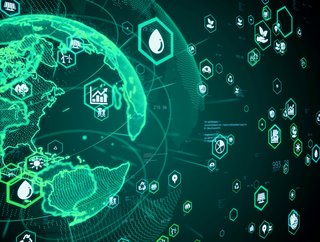Are we ready to hand humanity’s future over to AI?

AI forces may be joining mankind on the frontline battle to save the planet, and a round-up of recent research projects suggests the world is ready for artificial intelligence to play a crucial role.
Opportunities for AI to be harnessed for good have already been spotted in a wide range of sectors and situations, including precision agriculture, sustainable supply chains, environmental monitoring and enforcement, and enhanced weather and disaster prediction and response.
Microsoft-commissioned research carried out by PwC UK claims using AI for environmental applications could contribute up to US$5.2tn to the global economy in 2030, a 4.4% increase in comparison to a scenario where AI is not applied.
Additional AI work could reduce worldwide greenhouse gas (GHG) emissions by 4% in 2030, says the research, an amount equivalent to the 2030 annual emissions of Australia, Canada and Japan combined. Almost 40 million new jobs would be created to serve the transition, it is predicted.
Tech research heavyweight Gartner has also carried out its own research and claims cloud sustainability, carbon footprint measurement and advanced grid management software are three more emerging environmental sustainability technologies that will reach early mainstream adoption, perhaps as quickly as within three years.
“Environmental sustainability cannot be the responsibility of just a few industries – if our climate is to be protected, sustainable business must be a global priority,” says Gartner Research Vice President Annette Zimmermann. “The transition to a net-zero economy will be as disruptive as the industrial revolution or the digital revolution, requiring new technologies, business models, strategies and processes.”
Cloud sustainability is the use of cloud services to achieve sustainability benefits within economic, environmental and social systems. Over the next three years, cloud providers will come under increasing pressure to have a transparent climate strategy and clear roadmap, predicts Gartner. By 2025, the carbon emissions of “hyperscale” cloud services will be a top shopper decision point.
Gartner expects carbon footprint measurement will see a growth in tools which will be supported by IoT-enabled environmental sensors that increase the quantity and quality of data collection.
Advanced grid management is used by electricity system operators to monitor and control energy resources across the electricity grid to maintain system stability and defer capital investments.
Oracle says the world’s ready for AI sustainability
The most important factors in sustainability are generally long-term and beyond the direct control of individuals, says Oracle Senior Vice president Juergen Lindner. “It’s no wonder managing environmental, social and governance (ESG) factors often takes a back seat to traditional business metrics. Pressure for results is high, careers are short, environmental and social factors are divisive, and it’s human nature to focus on what you can control.”
Oracle partnered with Savanta Research and Pamela Rucker, CIO Advisor and Instructor for Harvard Professional Development, to survey more than 11,000 consumers and business leaders in 15 global markets.
The research discovered people are “fed up with the lack of progress” on sustainability and social efforts and want businesses to step up. Most people (93%) believe sustainability and social factors are more important than ever, and a large majority of them (78%) are frustrated with the lack of progress by businesses on these initiatives.
The research also revealed business leaders agree more progress needs to be made, but nearly all face significant challenges in meeting their ESG goals. Just over 90% of business leaders are facing major challenges in making progress on sustainability and ESG initiatives including finding the right data to track progress, and time-consuming manual processes to report on ESG metrics. On top of the operational challenges, 96% of business leaders admit human bias and emotion often distract from the end goal.
Humans can work with technology to create more meaningful change, the research revealed, with 93% of business leaders saying they would trust a bot over a human to make sustainability and social decisions. Business leaders believe there is still a place for humans in these efforts, thinking they should manage making changes (48%), educating others (46%), and making strategic decisions (42%).
And the research also indicated that there has never been a better time to act as most people are willing to cut ties with brands that do not take action. Seventy percent of people would be willing to cancel their relationship with a brand that does not take sustainability and social initiatives seriously and 69% would even leave their current company to work for a brand that places a greater focus on these efforts.






